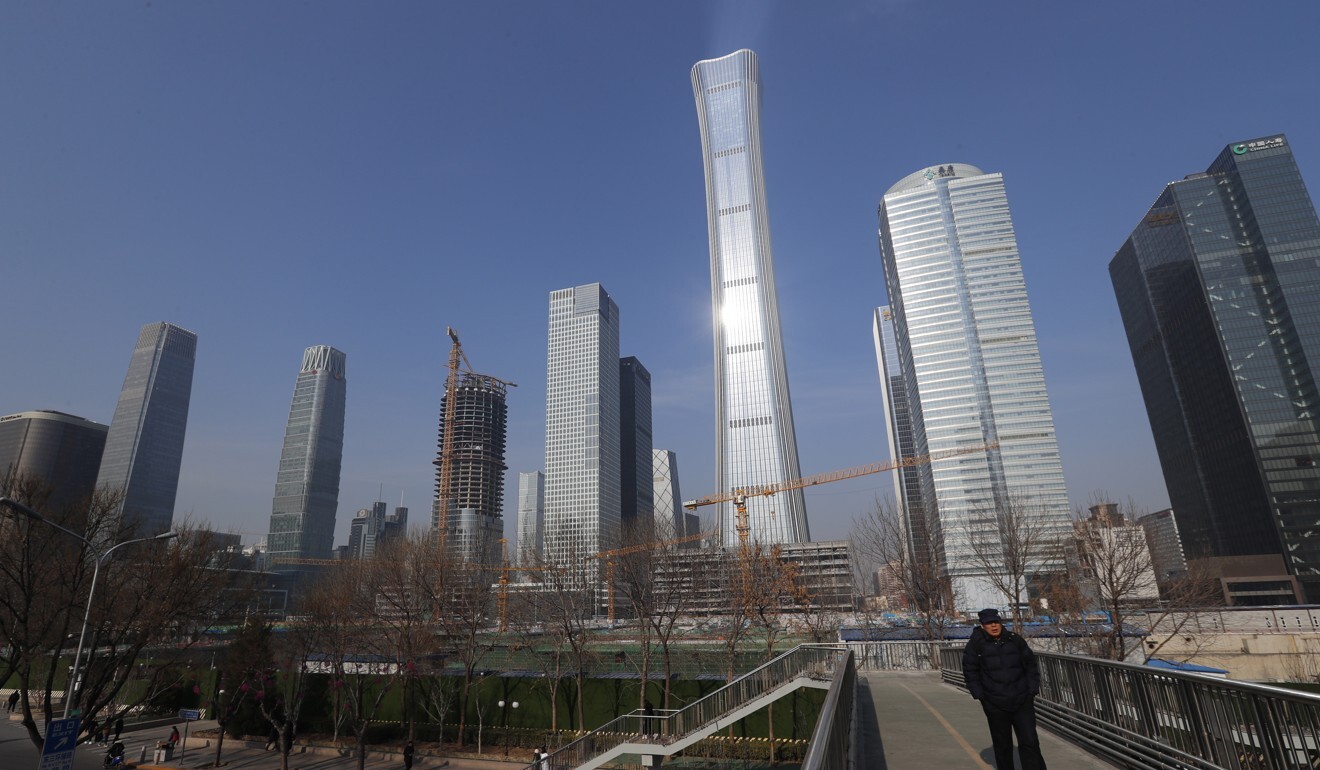
China will focus on self-reliance and cutting financial risk, says Vice-President Wang Qishan
- Xi Jinping’s right-hand man signals move away from a export-oriented strategy ahead of key Communist Party policy meeting
- Wang’s address to 2020 Shanghai Bund Summit was his first public remarks in almost a year
Chinese Vice-President Wang Qishan made his first speech in nearly a year on Saturday, sending a message that Beijing will focus more on economic self-reliance and financial risk ahead of a crucial Communist Party gathering.
Speaking through a video-link, he told the 2020 Bund Summit in Shanghai that the country would rely more on domestic markets and innovation to drive growth in the world’s second largest economy, pivoting away from the previous export-oriented and investment-led pattern.
“The momentum of the international circulation where China’s economic markets and resources are located has significantly weakened in recent years, [but] the contribution of domestic demand to economic growth has become increasingly strong” Wang said.
He said the country should make innovation and self reliance its “economic driving force” rather than relying on “international markets and resources”.
Wang is President Xi Jinping’s right-hand man, but has not given a public address since December last year despite attending most top level ceremonial events this year, including Xi’s speech on the 70th anniversary of the Korean war on Friday.
China GDP: economy grew by 4.9 per cent in third quarter of 2020
Speaking to hundreds of current and former officials, business representatives, academics and foreign diplomats on Saturday, Wang said that China has entered a stage of high-quality development and the economy “enjoys broad prospects” despite the impact of Covid-19.
“China also faces an increasingly complex and grave external environment, and the problem of unbalanced and insufficient development remains salient,” Wang warned.
He said that the Chinese government would spur more reform and opening-up to remove structural barriers and ensure the market played a key role in allocating resources.
Earlier this week, the country reported third-quarter growth of 4.9 per cent – the first major economy to show robust expansion this year.
Consumer spending, trade, production and investment all showed significant improvements but problems remain in some areas.

Retail sales, a key gauge of domestic demand, have yet to recover, showing a 7.2 per cent contraction over the first three quarters, and investment in manufacturing and infrastructure remains weak.
This year has also seen local governments, state-owned enterprises and ordinary citizens borrowing more.
Rising house prices in Shenzhen prompted a debate over whether Covid-19 relief money was fuelling a property bubble and led to the introduction of stricter regulations by the local authority.
Wang warned that new financial technology also brought increased financial risk.
“Ideals are important, yet one should not be idealistic,” Wang said. “There should be a fine balance between encouraging financial innovation, invigorating the market, opening up the financial sector and building regulatory capacity.
“The global financial and economic environment is undergoing drastic changes, we will keep the bottom line and at the same time be flexible in tackling risks and challenges and be bold to seek innovation.
China’s Xi urges revival of old rural distribution system to boost economy and enhance ‘ties with rural masses’
“Among safety, liquidity, and profitability – the three principles of finance – safety always comes first,” Wang said.
Wang also told the summit that China must make the financial sector firmly support other aspects of the economy and “keep away from the crooked road of excessive speculation, the wrongful path of financial bubbles’ self-reinforcing, and the evil way of Ponzi schemes”.
He also said that China must attach equal importance to financial innovation and stronger regulation.
Beijing has been trying to dispel lingering scepticism about the country’s business climate, concern about its disputes with the United States and the impact of Covid-19 by trying to boost sectors such as fintech and further open up to foreign investment.
The 2020 Bund Summit, which was jointly organised by China Finance 40 Forum (CF40), Huangpu district government and other institutions, is also designed to woo foreign investors. Guests at the three-day event, which ends on Sunday, include former US treasury secretaries Robert Rubin and Tim Geitner, Bloomberg chairman Peter Grauer, and Goldman Sachs vice-chairman John Waldron.


